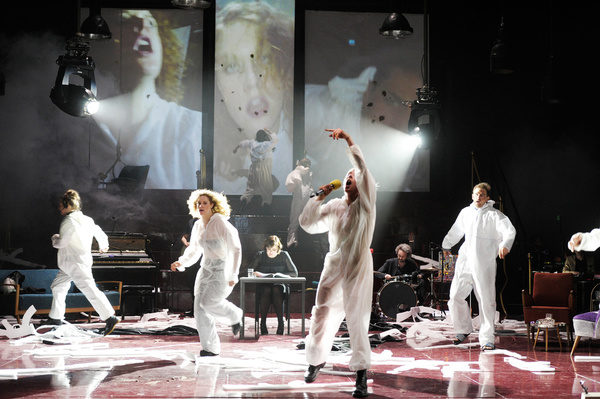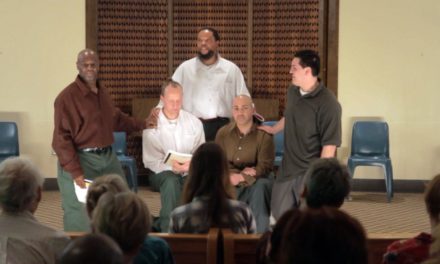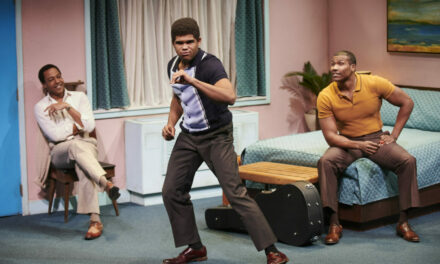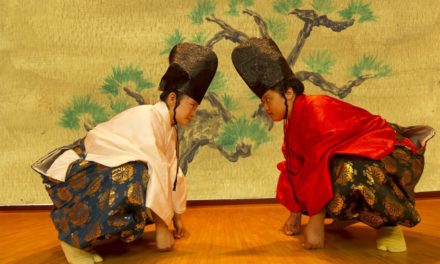Our correspondent Amelia Parenteau attended a “consciousness-raising” discussion of how and why women’s voices are missing in the field of translation as part of the 2015 PEN World Voice Festival. Here’s a look back at the discussion.
This past Saturday I attended a conversation at the Albertine Bookstore on the Upper East Side, organized as part of the PEN World Voices Festival. The panel was moderated by Margaret Carson and Alta L. Price and featured Susan Bernofsky, Jen Fitzgerald, Rob Spillman, and Véronique Tadjo. The elegant room with high ceilings and gilded windows overlooking Central Park held a sizable crowd containing booksellers, students, professors, translators, literary magazine editors, literary prize jurors, and curious bystanders, like myself.
The conversation began with a review of statistics gathered by an organization called Three Percent, a resource for international literature; the organization was created as part of the University of Rochester’s translation program and Open Letter. Jen Fitzgerald of the VIDA Count explained that their data reflected the lack of gender parity in the field of English-language translation. The lack of gender parity was apparent both in the authors being selected for translation and the translators doing the work.
Panel at Albertine Bookstore
In 2014, 396 male vs. 182 female authors were translated into English by 305 male vs. 287 female translators. Amazon Crossing, Amazon.com’s publishing house for translated works, demonstrated the best gender parity in authors translated into English. Dalkey Archive rounded out the worst of the 20 publishing houses examined, with zero female authors translated. The panellists asserted that women are not as widely published as men, although they are translating just as much. An examination of awarded recipients for works in translation returned similarly unequal results. The oldest award for works in translation, the PEN Translation Prize, has been given to 43 male vs. 6 female authors, and 48 male vs. 15 female translators since it began in 1963.
Panelists also shared their personal experience when assessing these statistics. Rob Spillman, the editor of Tin House magazine and editorial advisor of Tin House Books, shared that his magazine did an internal survey on gender parity and unearthed some surprising statistics. Spillman found that although unsolicited submissions from individuals were pretty equal in terms of gender parity, agent submissions were 2/3-3/4 male even though agents were 2/3 female. He also found that women he directly solicited work from were half as likely to submit than male authors (who would submit 99.9% of the time). Finally, when female writers were asked to submit another piece upon rejection of their initial submission, they were 1/4 as likely to resubmit than male writers. Spillman says he and his staff used this information to tailor the way they are soliciting submissions from women, in an effort to increase female representation. For example, he has rewritten the rejection letter asking for authors to submit another piece of their work to voice a more sincere appeal.
Véronique Tadjo
Véronique Tadjo, a French-language novelist born in Paris and raised in Abidjan, spoke from the perspective of francophone Africa. Initially, she assumed the situation was much better in the United States than it appears to be (according to Three Percent’s statistics). In Africa, she said, publishing is a challenge because it is so expensive, the readership to sustain the industry does not exist, and most publishing houses veer towards educational books rather than fiction or poetry. Although there is great exposure to African literature abroad, it is tailored to the Western market. However, certain organizations are working to have books published abroad brought back to Africa and republished by their own houses. Tadjo said, “I am a strong believer in translation because it can create dialogue, and open up perspectives for the better understanding of one another.”
With an estimated 2,000 languages spoken on the African continent, there is very little translation between indigenous languages. Tadjo perceived this as a loss: “We’re not sharing ideas, not collaborating as much as we could.” It’s very unfair, according to Tadjo, because women have played such an enormous role in the oral traditions of storytelling and poetry in Africa. As it stands, very few authors, male or female, write their literature in their indigenous languages because of this lack of collaboration.
Translator Susan Bernofsky, director of the literary translation program in the School of the Arts MFA Writing Program at Columbia University and a dedicated blogger on translation, spoke about the importance of creating a prize for women’s literature in translation. Bernofsky said, “An important step for getting parity is having this sort of celebration.” In her opinion, the likelihood of having an English-language translation published depends on the reputation of its author in their home country. One comparatively simple method of drawing attention to the work of female translators and creating more opportunities for female authors is by creating a prize for women’s literature in translation.
Alta L. Price
Moderator Alta L. Price asked if the current gender disparity is a form of censorship, and/or if it is affecting free expression. Although the panelists didn’t give a concrete answer, they did agree that, as Bernofsky said, “Change comes about through discomfort,” and it is only in confronting the uncomfortable truth of the statistics gathered by Three Percent and VIDA Count that gender parity will be achieved. Fitzgerald said the next step is to find a community of people interested in this issue and keep this conversation public. The VIDA website has a list of action steps for the advancement of women’s writing. She encouraged translators to make commitments to translating more female authors. Price also encouraged publishers to seek out more works by female authors.
Of course, this conversation is not limited to female authors and translators of fiction — it pertains to poetry, theater, non-fiction, and everything in between. PEN America offers an excellent list of translation resources for authors and translators. Organizations, like the Alliance of Artists Communities, help connect artists (translators included) to residencies around the world. The only way to achieve parity is to acknowledge the problem and advocate for solutions; this panel certainly did its part to embody PEN World Voices’ mission to “celebrate the transformative power of the written word.”
Amelia Parenteau is an American playwright, journalist, translator, and cultural commentator currently living in Brooklyn. She is a graduate of Sarah Lawrence College where she studied writing, theater, French, and gender studies. She has worked with TCG, Ping Chong & Company, The Lark Play Development Center, and The Civilians in New York, and the Eugene O’Neill Theater Center in Waterford, Connecticut. She is a member of the FENCE and the League of Professional Theatre Women, and she has been published in Asymptote Literary Magazine and American Theatre Magazine, as well as Culturebot, Extended Play, and the TCG Circle.
This post was written by the author in their personal capacity.The opinions expressed in this article are the author’s own and do not reflect the view of The Theatre Times, their staff or collaborators.
This post was written by Amelia Parenteau.
The views expressed here belong to the author and do not necessarily reflect our views and opinions.


















